Tips for Cooling Large Spaces with Air Conditioning
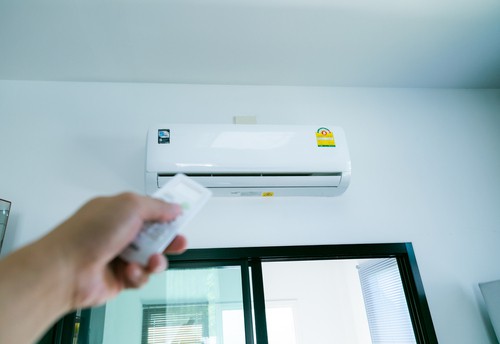
Tips for Cooling Large Spaces with Air Conditioning
Tips for Cooling Large Spaces with Air Conditioning. Cooling large spaces in Singapore’s hot and humid climate presents unique challenges.
The high temperatures and humidity require powerful and efficient air conditioning solutions to maintain comfort.
Efficient air conditioning in large spaces concerns comfort, energy conservation, and cost-effectiveness. It is crucial for creating a pleasant environment in commercial buildings, offices, and large residential areas.
Read on – Tips for Cooling Large Spaces with Air Conditioning:
Understanding the Dynamics of Large Space Cooling
The efficiency of cooling large spaces depends on factors such as room size, ceiling height, occupancy, and the heat generated from various sources, including electronics and lighting.
Air conditioning systems must work harder to circulate cool air evenly in spacious environments. Understanding how these systems operate is key to optimizing their efficiency.
Choosing the Right Aircon System
Selecting the right aircon system involves considering the size of the space, the system’s capacity, energy efficiency ratings, and the specific cooling needs of the area.
Centralized systems are generally more efficient for larger spaces due to their capacity and even air distribution capabilities. Split systems, while more flexible, may be better suited for smaller or segmented areas.
Strategic Placement of Aircon Units
The strategic placement of aircon units is vital for efficient cooling. Units should be positioned to avoid obstructions, ensuring even cool air distribution across the entire space.
Ensuring proper airflow and distribution is critical in large spaces. This involves considering the space layout and the placement of vents and ducts.
Smart Temperature and Humidity Control
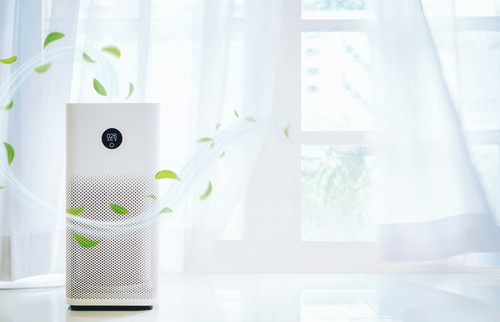
Setting Ideal Temperatures for Comfort and Efficiency
Setting the thermostat to an ideal temperature, typically 24-26°C, can balance comfort with energy efficiency. Avoid setting the temperature too low to reduce energy consumption.
Managing Humidity Levels in Large Spaces
Controlling humidity is as important as managing temperature. Dehumidifiers or aircon systems with built-in dehumidifying features can help maintain optimal humidity levels, enhancing comfort and preventing mold growth.
Regular Maintenance for Peak Performance
Adhering to a regular aircon maintenance schedule is key for the longevity and efficiency of large aircon systems. This includes routine inspections, cleaning, and timely repairs.
Regularly cleaning filters, checking refrigerant levels, and ensuring all components function properly can significantly improve the system’s efficiency and reduce energy costs.
Utilizing Programmable Thermostats
Smart thermostats offer the advantage of programmable settings, allowing for automatic adjustments based on occupancy and time of day. They can significantly enhance energy efficiency in large spaces.
Optimize thermostat settings by programming them to adjust temperatures based on peak and off-peak hours. This ensures that the space is not being over-cooled when not required.
Enhancing Air Circulation
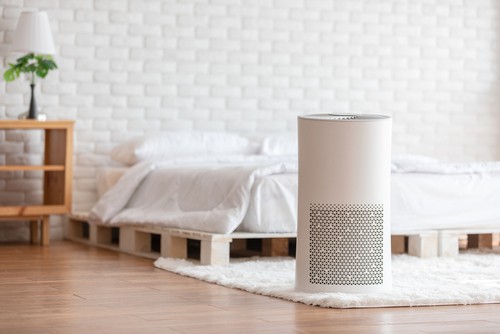
Fans and ventilation systems support air conditioning by improving air circulation. They help distribute cool air more evenly and can reduce the overall load on the aircon system.
Implementing effective air circulation strategies includes using ceiling or standing fans, optimizing natural ventilation, and ensuring that the aircon system’s vents are unobstructed.
Energy-Efficient Practices
Energy-saving tips include using programmable thermostats, ensuring proper insulation, regular maintenance, and encouraging practices that reduce heat build-up, such as using energy-efficient lighting and appliances.
Consider upgrading to more energy-efficient aircon models. Newer models often have better energy ratings and are equipped with advanced features that can significantly lower energy consumption.
Insulation and Sealing Techniques
Improving insulation in walls, ceilings, and windows can help retain cool air and reduce the workload on the air conditioning system. This includes using double-glazed windows and proper wall insulation.
Sealing any leaks or drafts in doors and windows is essential to prevent cool air from escaping. This ensures that the air conditioning system is not overworked, thereby increasing energy efficiency.
Utilizing Window Treatments and Shading
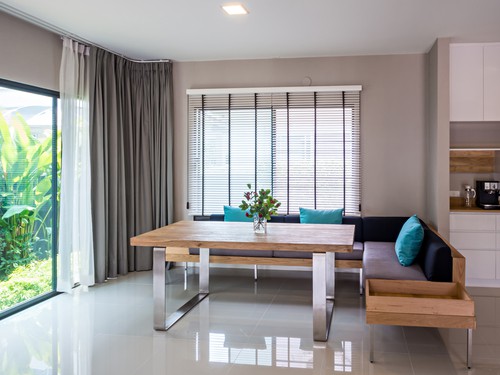
Impact of Sunlight on Indoor Temperature
Direct sunlight can significantly increase indoor temperatures. Utilizing window treatments such as blinds, curtains, or solar films can help reduce heat gain from sunlight.
Choosing the Right Window Treatments for Cooling
Select window treatments that block sunlight and allow natural light to penetrate without heat. This can help in reducing reliance on artificial lighting, thereby saving energy.
Balancing Aircon Use with Natural Cooling
Natural ventilation can be a great supplement to air conditioning. Opening windows to allow fresh air on cooler days can reduce the need for artificial cooling.
Understanding when to switch between air conditioning and natural cooling methods is key. Natural ventilation can be more efficient during cooler periods, such as early or late evenings.
Frequently Asked Questions
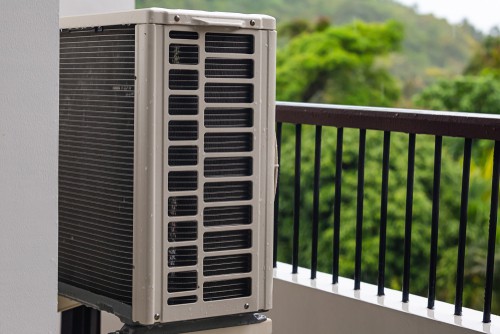
What is the most efficient way to cool a large space in Singapore with air conditioning?
Efficiency in cooling large spaces involves more than just setting the air conditioner to the lowest temperature.
It includes selecting the right type of air conditioning system (centralized or split systems based on the specific needs of the space), optimizing the placement of aircon units for even air distribution, setting the thermostat to a balanced temperature (typically around 24-26°C), and maintaining optimal humidity levels.
How can I reduce my energy bill while cooling a large space?
Optimize thermostat settings, ensure regular maintenance, use energy-efficient models, and incorporate natural cooling methods whenever possible to reduce your energy bill.
What are the signs that my aircon isn’t efficiently cooling a large area?
Signs include uneven temperature distribution, frequent cycling of the aircon unit, and higher-than-usual energy bills.
Can I use multiple small aircon units instead of one large system?
While multiple small units can provide flexibility, they may not be as energy-efficient as a single, properly sized central system for large spaces.
How do I ensure even cooling distribution in a large space?
Ensure even cooling distribution by strategically placing aircon units and vents, utilizing fans for air circulation, and regularly maintaining the system for optimal performance.
Tips for Cooling Large Spaces with Air Conditioning – Conclusion
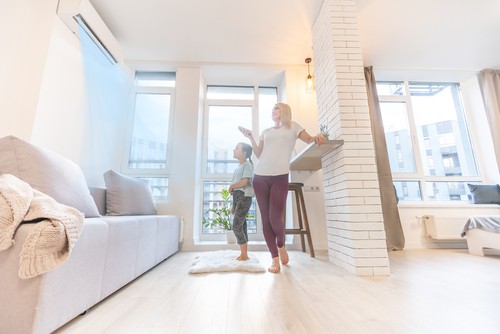
Effectively cooling large spaces in Singapore’s climate involves choosing the right aircon system, strategic placement, smart temperature and humidity control, regular maintenance, and utilization.
By implementing these strategies, individuals and businesses in Singapore can achieve a comfortable indoor environment in large spaces while also being mindful of energy consumption and cost-efficiency.
Are you seeking a professional and reliable aircon servicing company in Singapore? Contact us today!




